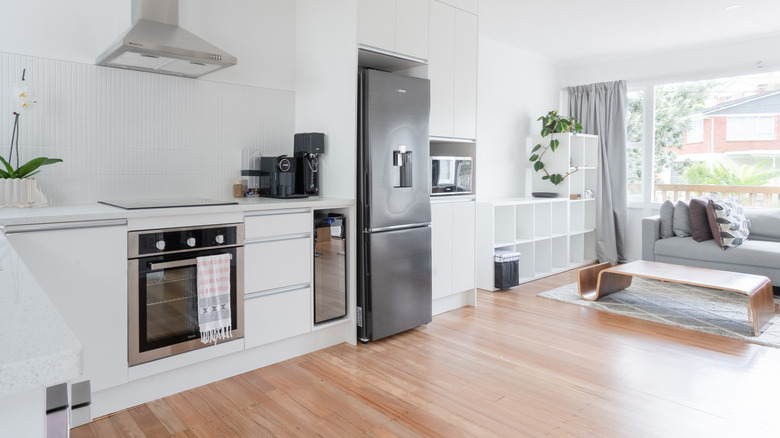The Hidden Dangers Of A Circuit Breaker That Keeps Tripping
Anyone without an electrical engineering or computer science degree may look at modern marvels of technology like their laptops, televisions, or home appliances as magic boxes that are simply useful as intended. However, you should have at least a basic understanding of electrical infrastructure so you know what to do if things go wrong. For instance, it's important to know: is it dangerous if my circuit breaker keeps tripping? The answer is, unequivocally, yes; a repeatedly tripped circuit breaker means your electrical systems are being constantly overloaded, which is a good way to set things on fire. This, along with potential electrocution, is one of the biggest hidden issues in a faulty circuit breaker.
Before you start to ask whether having circuit breakers is worthwhile given they can also be a dangerous fire risk, know that your home would likely be in greater danger without. A breaker literally cuts the circuit through which your appliance is drawing power from the grid if it starts to draw more electric currents than the system is designed for — typically 20 amps or so. Circuit breakers can operate as a purely electrical mechanism or via a manual handle, though the latter is mostly used for maintenance work. If you're wondering why your stove keeps tripping the circuit breaker, you should know that something is being overwhelmed in your system. Be cautious so as not to start a fire or electrocute yourself.
Keep an eye out for the causes of circuit breaker trips
One of the most likely causes of a circuit breaker tripping is having too many appliances running at once. If you're making a nice family dinner and have to run your old gas oven, stove, and microwave, all of which are attached to the same circuit, this could overwhelm the system and cause it to trip, shutting everything off. A life-threatening fire is more likely to start if you're using appliances on a circuit which has shorted — when damaged wires or outlets become completely burnt out from a sudden surge of electricity. A short circuit is not only dangerous, it's also a potentially ongoing issue. If you're only resetting the breaker or replacing a fuse, this can lead to additional shorts unless you as change the inputs which caused that power surge, which could lead to more broken electrical pieces.
If you've made any personal adjustments to your electrical systems, for example, installing wall outlets from other countries into your home, you also run the risk of failure due to mismatched types of electrical currents and a lack of the right grounded plugs. Circuit breaker tech is incredibly important, whether you're using them to power a dishwasher or keep planes airborne without any kind of electrical hitches. Still, it is dangerous if a circuit breaker keeps tripping, so make sure to keep an eye on your utilities and have a professional electrician or expert on speed dial in case you suspect your grid may begin to experience short circuits.

